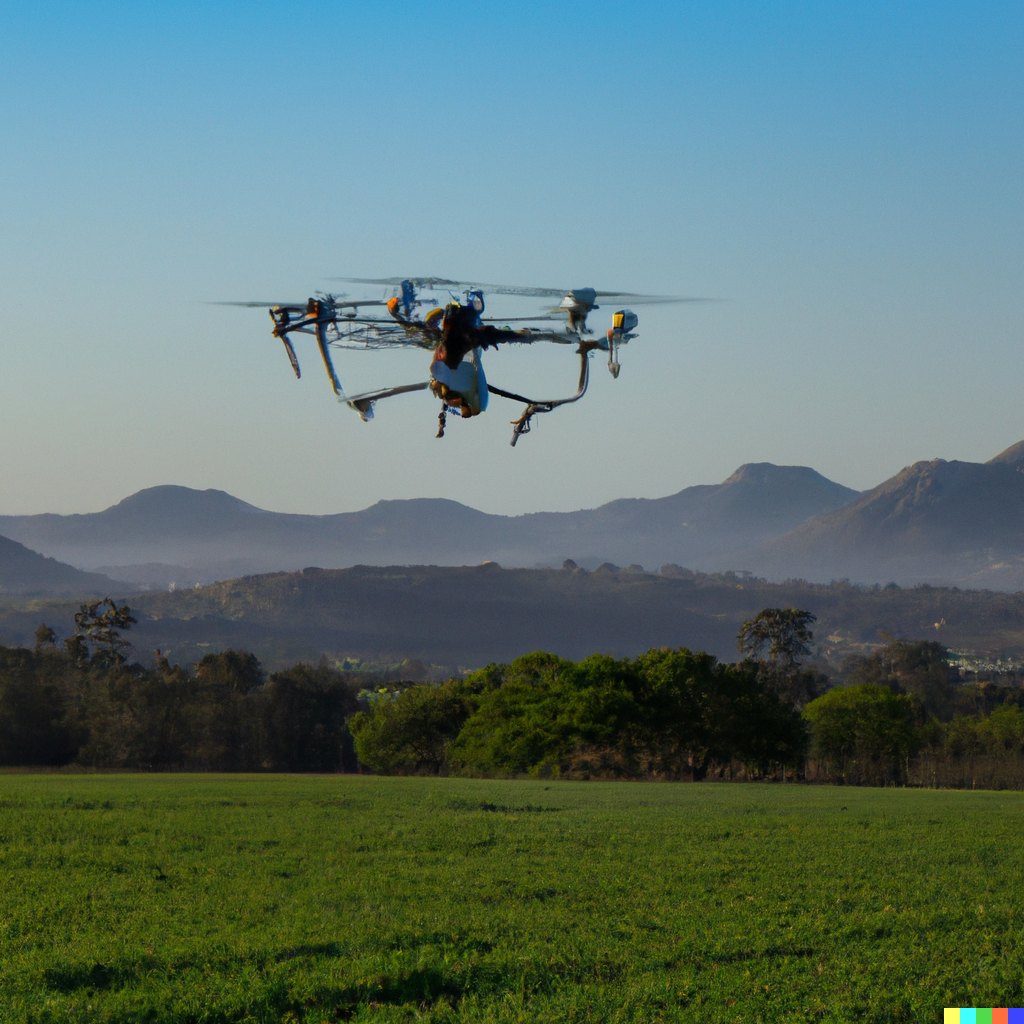Revolutionizing South African Agriculture: Harnessing Drones and Technology for Farming Success

In recent years, the integration of technology into agriculture has opened a world of possibilities for farmers, transforming traditional farming practices into smart and efficient operations. South Africa, with its vast agricultural landscape and diverse crops, is poised to reap the benefits of technological advancements. One such innovation that has captured the attention of farmers across the country is the use of drones in agriculture. In this blog, we will explore how drones are revolutionizing South African agriculture and how farmers can leverage this technology to maximize their yields and streamline their operations.
Precision Agriculture: A New Era:
Drones, also known as unmanned aerial vehicles (UAVs), have emerged as powerful tools in the realm of precision agriculture. By equipping drones with various sensors, cameras, and data collection devices, farmers gain access to real-time and high-resolution data about their crops, soil conditions, and other critical parameters. This wealth of information enables farmers to make informed decisions and optimize their farming practices like never before.
Crop Monitoring and Management:
Drones equipped with multispectral or hyperspectral cameras can capture detailed images of crops, revealing valuable insights invisible to the naked eye. These images provide information about crop health, pest infestations, nutrient deficiencies, and even water stress. By identifying these issues early on, farmers can take targeted actions to address them, such as applying precise amounts of fertilizers, pesticides, or water, thus minimizing waste, and maximizing crop health.
Mapping and Surveying:
Traditional methods of land surveying and mapping can be time-consuming and expensive. Drones equipped with GPS and imaging technology can quickly and accurately survey vast tracts of land, creating detailed maps that assist in land planning, irrigation design, and crop rotation strategies. This not only saves time and resources but also ensures that farmers can make the most efficient use of their land, leading to higher yields and reduced costs.
Irrigation and Water Management:
Water scarcity is a significant concern for many South African farmers. Drones equipped with thermal cameras and advanced sensors can analyse crop water stress levels and help farmers identify areas that require irrigation. This data enables precise water management, ensuring that water is distributed only where it is needed most. By minimizing water waste, farmers can conserve this precious resource while maintaining optimal crop growth and reducing costs associated with excessive irrigation.
Livestock Management:
Drones are not limited to crop-related applications; they can also revolutionize livestock management. Farmers can use drones to monitor the health and behavior of their livestock, such as tracking grazing patterns or identifying sick or injured animals. This real-time information allows for early intervention, preventing the spread of diseases, reducing losses, and ensuring the overall well-being of the herd.
Challenges and Considerations:
While the integration of drones in South African agriculture holds immense potential, several challenges must be addressed. Regulatory frameworks for drone usage need to be established to ensure safe and responsible operations. Farmers should also invest in training their staff to operate drones effectively and interpret the collected data accurately. Additionally, considerations regarding privacy and data security must be addressed to maintain the trust of farmers and protect their valuable information.
Drones have opened up a new realm of possibilities for South African farmers, allowing them to optimize their operations, increase productivity, and reduce costs. By harnessing the power of precision agriculture, farmers can make data-driven decisions, minimize environmental impacts, and conserve resources. As the technology continues to evolve, the potential for drones to transform South African agriculture is only set to grow. By embracing this innovative tool, farmers can position themselves at the forefront of a new era in farming, reaping the benefits of improved yields, increased profitability, and sustainable practices.
Unleashing the Power of Data Analysis in Agriculture
In the digital age, data analysis has become a cornerstone of various industries, and agriculture is no exception. By harnessing the power of technology and analyzing vast amounts of agricultural data, farmers can gain valuable insights, optimize their practices, and make informed decisions.
Data analysis empowers farmers with actionable information that can guide their decision-making processes. By collecting and analyzing data from various sources, such as weather patterns, soil composition, crop growth rates, and market trends, farmers can make more accurate and informed choices. For example, analyzing historical weather data can help farmers plan their planting schedules, optimize irrigation, and manage crop protection measures based on predicted pest and disease outbreaks. This level of data-driven decision-making increases efficiency, reduces risks, and ultimately improves the profitability of farming operations.
While data analysis in agriculture offers numerous benefits, there are challenges that need to be addressed. The collection and analysis of large volumes of data require robust infrastructure, reliable connectivity, and access to affordable technology. Additionally, farmers must acquire the necessary skills and knowledge to interpret and utilize data effectively. Privacy and data security concerns must also be addressed to maintain the trust of farmers and ensure the protection of sensitive information.

